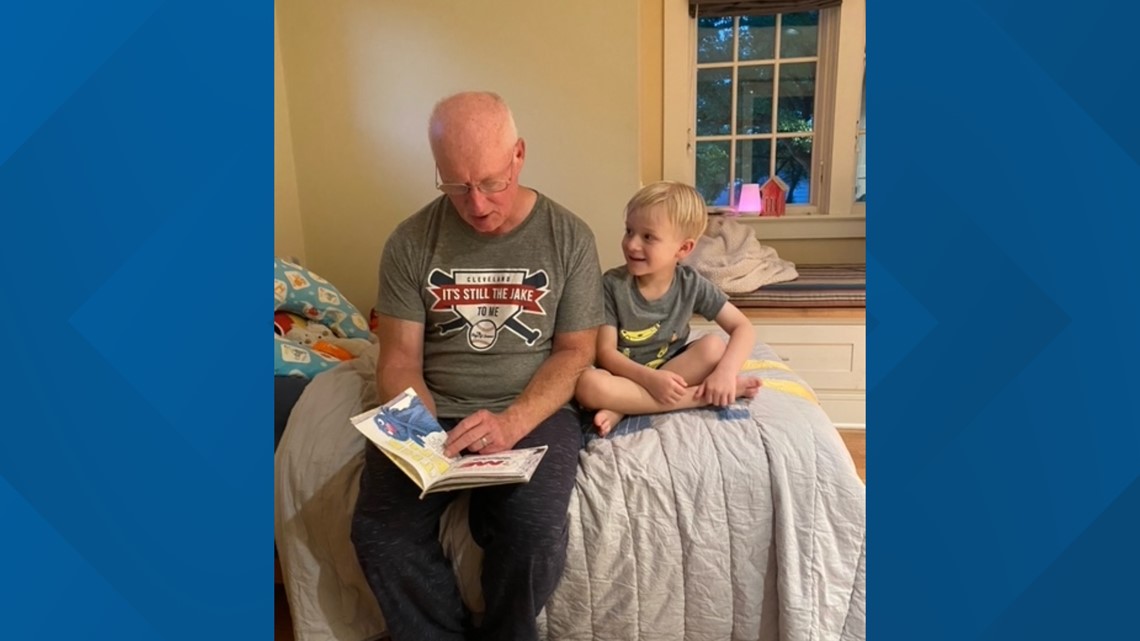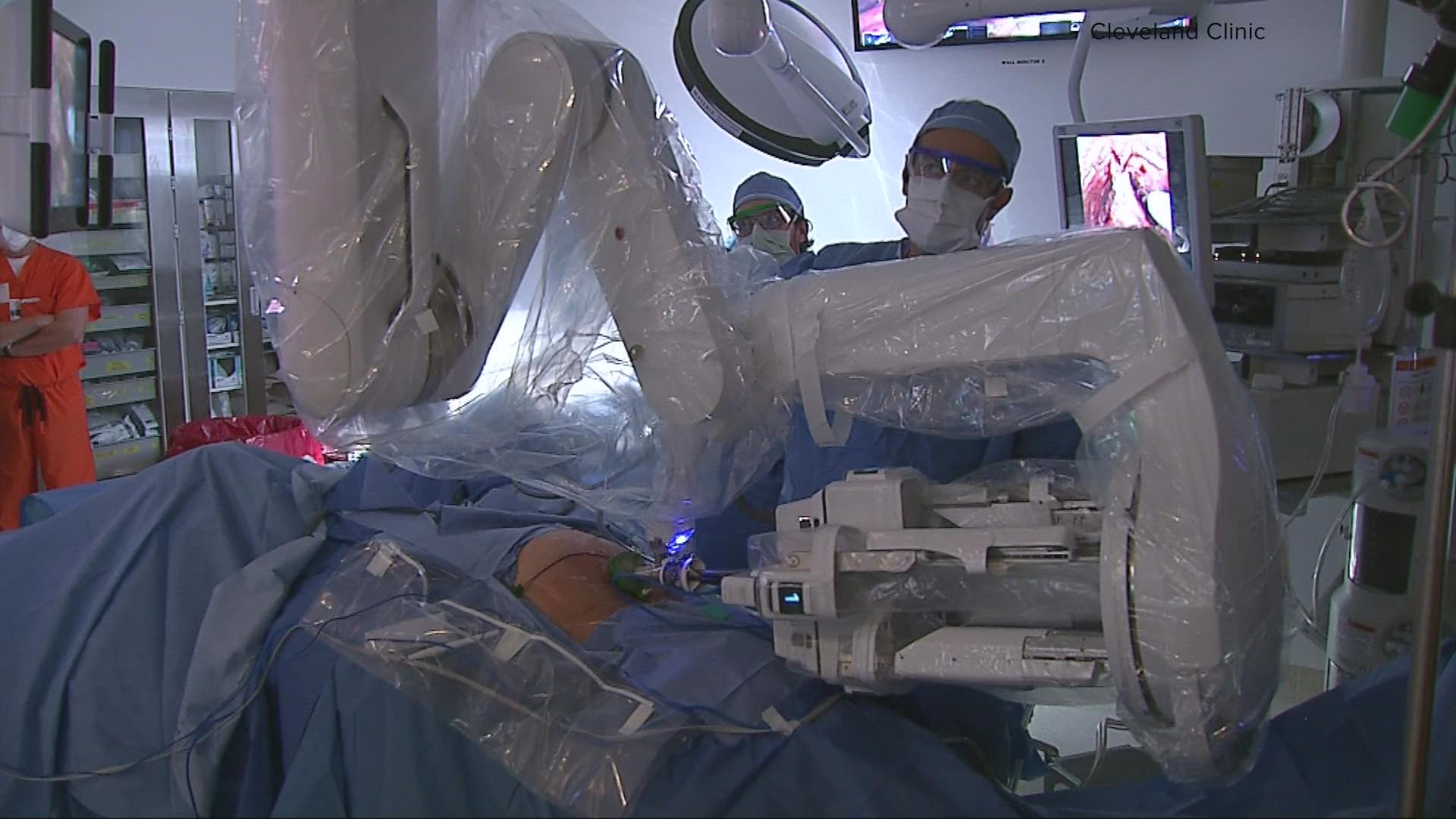CLEVELAND — September is Prostate Cancer Awareness Month, and a Cleveland Clinic survey released Wednesday found 1/3 of men say they've never been screened for prostate cancer. Additionally, 55% say they don't get regular health screenings.
What they may not know is how far treatment advanced.
Youngstown native Jim Senary is living in Texas to be closer to family. After undergoing three biopsies to rule out prostate cancer, his PSA tests results were still concerning, so his doctor suggested a fourth. Jim asked for a different opinion.
"I asked him, 'Where do you think is the best place in the world?'" Jim remembered. "He said, 'Probably Cleveland Clinic.'"
Dr.Jihad Kaouk is head of robotic surgery at the Clinic's Glickman Urological & Kidney Institute. He performs nearly 200 prostate cancer surgeries a year, but the hospital system is one of just a handful doing a new procedure called transvesical prostatectomy, using single-port robot technology.
What's different? How they access the prostate.
"The cut is just under the belly button, and you get the robot straight into the bladder, looking at the prostate from the first minute you start," Kaouk explained.
Jim was tired of worrying and waiting.
"I made the decision to take it out," he said, "because I didn't want to think about it anymore."
But instead of full anesthesia with a ventilator, the team offered Jim another new approach: the option of an epidural. His pelvic area would be numb from the waist down and he'd be awake. He didn't feel a thing.
"I thought, 'Wow, that was not painful in any way, shape or form," he recalled.


After just a few hours in recovery, Jim went home to rest and was out walking a couple days later, very glad he had access to the latest procedure.
"I would think consistency is something you'd want, and once you found the right approach you stick with it," he said. "But what impressed me was the fact that he was very intent on improving what he had done before."
Kaouk says the method may also lessen the risk of long-term urinary incontinence, a typical side effect with prostate surgery.
"This has been shortened significantly now that we go through the bladder," he told 3News, "because we don't cut any of the attachments."
For some patients, it may also lessen the chance of erectile dysfunction.
"We believe we can save the nerves responsible for potency better in this approach," Kaouk said.
For Jim, the surgery gave him an acceptable option, and he's grateful he can now focus on his grandchildren instead of prostate cancer.

